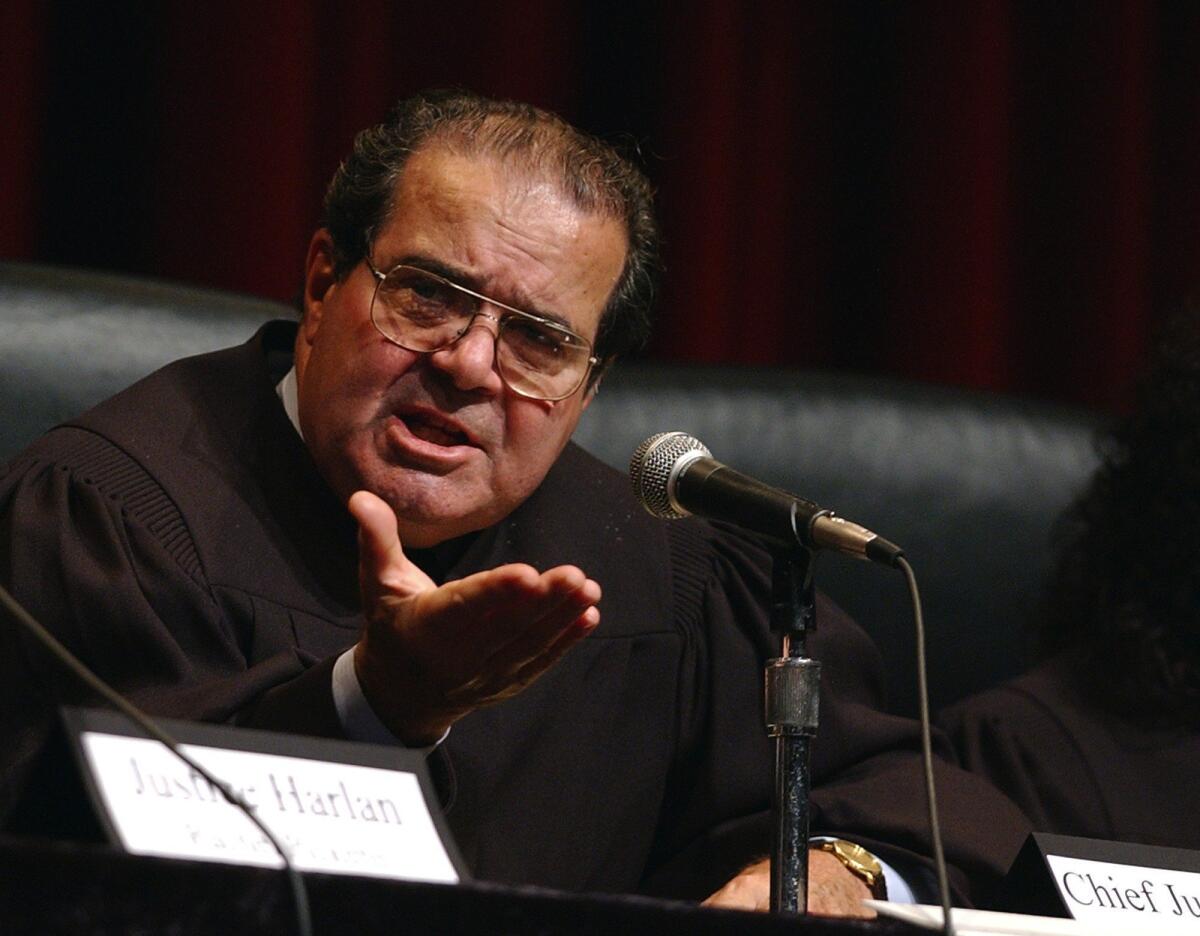Readers React: Scalia the curmudgeon: How bad is his invective?

U.S. Supreme Court Justice Antonin Scalia is seen during a re-enactment of the 1905 case Lochner vs. New York in 2005.
- Share via
To the editor: Supreme Court Justice Antonin Scalia seems unable to understand that democracy, of its own nature, is a progressive form of government and will never remain in the static form his comfort level seems to require. (“Justice Scalia: Why he’s a bad influence,” op-ed, July 14)
His florid attempts to demean, however, are recognized by everyone who survived the bullies on the playground back in grade school.
Jacqueline Kerr, Los Feliz
..
To the editor: Erwin Chemerinsky’s scathing Op-Ed was perfect.
Scalia may still be somewhat intelligent, but his attitude disqualifies him as a justice on the highest court in the land.
He will forever be known as the curmudgeon justice and the worst of the sore losers.
There ought to be a way to get him dismissed from the position he no longer deserves.
Gary M. Barnbaum, Woodland Hills
..
To the editor: I have to disagree with Chemerinsky.
People tend to think the Supreme Court is something other than another political branch, but it’s not.
The other parts of our government — executive and legislative — are full of people who say childish, vain, spiteful, meaningless things. We really don’t need to hold the Supreme Court to a different standard.
Phil Brimble, Los Angeles
..
To the editor: Isn’t it implausible that law students would be so gullible and so largely influenced by just the tone and style of one — out of nine — Supreme Court justices?
For any law students who are so easily impressionable, is it also possible that they are attracted to some of Scalia’s substantive positions?
Or could some students have become reasonably cynical about the apparent politics of the nation’s highest court, especially in recent years?
Could it also tend to generate sarcasm if one thought, for instance, that Justice John G. Roberts Jr. — perhaps to appear neutral in his varied political results — is seen as inconsistent in jurisprudential principle?
Yet another explanatory factor might be that many university students, as undergrads, have for years already seen more such tone and style in the political rhetoric of their campuses.
As a philosophy professor in California universities since 1980, I’ve definitely seen this trend.
Stephen W. Ball, San Luis Obispo
Follow the Opinion section on Twitter @latimesopinion and Facebook
More to Read
A cure for the common opinion
Get thought-provoking perspectives with our weekly newsletter.
You may occasionally receive promotional content from the Los Angeles Times.









